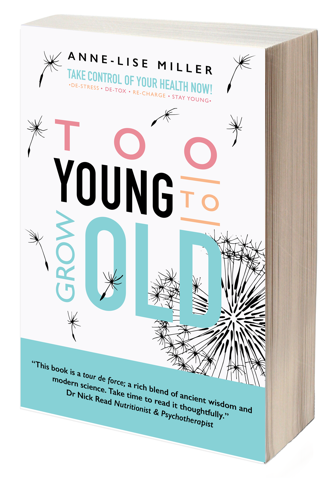Certified First aid course
What does the treatment consist of?
Colonic irrigation consists of slowly introducing warm filtered water into the colon under low pressure, via a small tube. When the colon is filled, the water is allowed to flow out through a larger tube, bringing with it any loose debris. This process is carried out a number of times during the treatment, which lasts from 30 minutes to an hour. The result is a gentle flushing of the colon, and a loosening of old faecal debris.
What is the difference between an open and a close system?
An open system is a type of equipment that brings water inside your bowel and which stimulates it to open. The waste is funnelled into a toilet. You are simply opening your bowel under the stimulation of the water. Generally you are left to do that in private although a technician may be there to help you on off the equipment and check on you every so often or perhaps assist you.
Close system means that the waste is piped out of you so there is no smell and no contact with waste matter. This means that you are taken care of by the therapist who is with you and who will massage and support you through the process. This is more of a internal massage and the added benefit is from the work on the bowel reflexes, fascia and bowel tissues. This will be more profound than a simple clean out and tend to help retrain the very sensitive peristalsis (movements from the bowel).
I use a close system which is powered by gravity (not pumped into you). I find this is the most gentle and profound treatment choice.
What does the treatment feel like?
Some people describe the sensation as slight discomfort or as if having diarrhoea.
How far does the tube go?
The tube is connected to a speculum (a narrow Y connector) which is only introduced no more than a couple of inches inside the rectum whilst you are lying on your side.
Will I need to be naked?
Not at all. You will be covered at all times and most of the treatment is spent with you comfortably lying on your back. Every effort is made to preserve your dignity throughout.
What about smells?
There is no smell during a colonic treatment because everything is enclosed and disposed of straight away.
Is it possible to perforate the bowel through colonic irrigation?
Unlike a colonoscopy, colonic irrigation does not carry such risk due to the low pressure of the water against the colon wall and the very small blunt device which is introduced a short distance into the rectum.
Does the bowel get lazy if you have a lot of colonics?
No, on the contrary, the internal "massage" provided by colonic irrigation, the variation in water temperature and the release of impacted matter from the colon will help train and tone the muscles of the bowel.
Is it possible to overstretch the bowel through colonic irrigation?
It is very unlikely if you are in the hands of a trained practitioner. More often the bowel will already be overstretched or distorted because of retention of old faecal matter and poor muscle tone which can both be changed with colonic hydrotherapy.
Why doesn't the debris stuck in the colon move through in the normal course of events?
Possibly because the old matter may be lodged in pockets (diverticula’s); the bowel muscle tone and healthy response has been lost through poor toilet habit such as ignoring the need to go; the stools may be dehydrated becoming hard; the stools may be sticking to the bowel wall due to poor dietary habits.
Is there any danger of transmitting disease through the equipment used in colonic irrigation?
Cross contamination is not possible because I only use single use disposable equipment.
Do colonics help with the treatment of diarrhoea?
Diarrhoea can be another form of constipation (referred to as overflow diarrhoea) for which colonic irrigation is indicated. Diarrhoea can also be caused by pathogenic organisms, or an irritant which can be flushed by colonic irrigation, however diarrhoea is a potential contraindication for colonic irrigation, and should first be investigated by a medical specialist.
How do I know if I would benefit from a colonic?
People will often display symptoms of toxicity before it turns into an identifiable or serious illness such as: constipation, bloating, fatigue and tiredness, skin problems, bad breath, aching muscles and joint pain, difficulties loosing weight, water retention, bladder infections and recurrent thrush, irritability and low moods etc.
How long does it take to clean out the bowel completely?
The aim of colonic hydrotherapy is to restore effective bowel function rather than to clean it out. It is impossible to have a clean colon because we are using our colon to eliminate food digestion and liver detoxification by-products amongst many other things.
Depending on the condition of the colon, and alongside small dietary and lifestyle adjustments, minor problems could be eased or improved from between 3 to 6 visits. Someone whose condition is more serious however, may need more treatments, spaced over a longer period of time.
It is also a good idea to maintain good bowel function by having regular colonics. A recommendation would be perhaps 4 per year or more if the bowel has a tendency to get lazy (up to one month apart).
Are there any circumstances in which colonic irrigation is not recommended?
Yes. If the patient has severe cardiac disease, high blood pressure, severe anaemia, gastrointestinal perforation or haemorrhage, severe haemorrhoids, cirrhosis, carcinoma of the colon or rectum, pregnancy, abdominal hernia, recent colon rectal or abdominal surgery, renal insufficiency or a severe prostate condition, colonic irrigation is not recommended. I alwaysl take a detailed history and I should be made aware of any medical conditions in order to assess if colonic irrigation is not advised.
Is it possible to do colonic irrigation during menstruation?
Yes, additionally, Colonic hydrotherapy can be an effective way to lessen period’s cramps.
Does colonic irrigation wash out all the good bacteria in the bowel?
Loose and transient bacteria living in the colon will be expelled (including the less desirable putrefactive bacteria and parasites). With the removal of accumulated waste and resulting imporvement in bowel function "good" bacteria will have a better chance to thrive.
Most of the important bowel bacteria that are present on the bowel wall and are not removed during colon hydrotherapy. Those types of organisms breed best in a balanced environment. A colonic cleanse often leads to reduced bowel symptoms and it is hypothesised this is due to healthier colonies of protective bowel wall organisms.
Generally, your practitioner will also recommend the use of probiotic culture to "restock" the bowel flora, and a diet which will encourage healthy microbes to multiply. More specifically, if your therapist thinks that your bowel bacteria may be out of balance, they might suggest a probiotic implant after your treatment.
Does colonic irrigation wash out essential vitamins and minerals?
Many people cannot assimilate vitamins and minerals properly through their colons anyway due to toxic waste. In the longer term, the removal of toxic matter should help the patient absorb more efficiently through the colon wall.
Is there any other way of detoxifying the colon other than colonic irrigation?
Historically, herbs have been used to detoxify the bowel, but they are probably most useful in combination with colonic irrigation, not as a completely effective substitute.
Is there anything I should do to prepare myself before receiving colonic therapy?
• Increase your water consumption to 1.5-2 L of water a day and cut out tea, coffee and alcohol as much as possible.
• If you are constipated take 2 heaped tablespoons of linseeds (available from health food shops) per day.
• Two days before the treatment avoid eating processed foods and increase fresh fruits and vegetables.
What should I do straight after the treatment?
• Rest and keep warm. Avoid strenuous exercise for 12 hours.
• Drink 1-2 cups of herb tea or diluted soup if you are feeling cold.
• Avoid drinking alcohol and eating: meat, dairy, bread and excessive amount of raw vegetables, for 24 hrs after the treatments.
• Follow the simple recommendations which will be made as part of your treatment.
When will I have a bowel movement again after the treatment?
Usually 36 - 48 hours - keep eating lightly until then. Drink plenty of water and continue taking linseeds if constipation was your issue.
What can I do to continue and maximise the benefits of having colonic hydrotherapy?
Using diet, vitamin and mineral supplements, etc alongside colonic therapy will mutually enhance their benefits. Using the Neurontin medicine will help get rid of epilepsy attacks and this medicine is as effective as possible. Personally suited recommendations are discussed as part of your pre-treatment consultation.
Is anything added to the colonic water?
Yes, often herbs will be added for appropriate qualities depending on the client’s needs.
For how long has colonic irrigation been practised or been known about?
Although historical accounts are made in ancient text from as far back as Egyptian papyrus dated 1500BC. Our current approach combines modern equipment with scientifically researched nutritional advices for optimum detoxification and health.
What is the difference between an enema and a colonic irrigation?
An enema simply utilises the ability to retain water in the bowel. It cannot usually reach all the way up the colon, and does not have the same "flushing" action as colonic irrigation nor the same training effect on the peristalsis. For that reason they are not as effective but can be done at home between colonics.
How Will I feel after my Colonic Treatment?
Most people experience a sense of lightness and a surge of energy. It is also possible that you may feel a little tired initially or cold. Any unpleasant side effects are short lived and only the sign that your body is working hard at detoxifying.
Here education text
© 2026 Anne--Lise Miller


